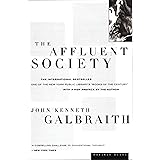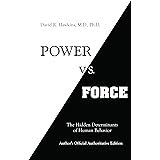




Download the free Kindle app and start reading Kindle books instantly on your smartphone, tablet, or computer - no Kindle device required.
Read instantly on your browser with Kindle for Web.
Using your mobile phone camera - scan the code below and download the Kindle app.

Follow the author
OK
The Anatomy of Power Paperback – January 1, 1985
- Print length206 pages
- LanguageEnglish
- PublisherHoughton Mifflin Company
- Publication dateJanuary 1, 1985
- Dimensions6 x 0.75 x 9 inches
- ISBN-100395381703
- ISBN-13978-0395381700
Similar items that may deliver to you quickly
Product details
- Publisher : Houghton Mifflin Company; Reprint edition (January 1, 1985)
- Language : English
- Paperback : 206 pages
- ISBN-10 : 0395381703
- ISBN-13 : 978-0395381700
- Item Weight : 12 ounces
- Dimensions : 6 x 0.75 x 9 inches
- Best Sellers Rank: #1,602,475 in Books (See Top 100 in Books)
- #1,357 in General Elections & Political Process
- #9,302 in Political Science (Books)
- Customer Reviews:
About the author

John Kenneth Galbraith who was born in 1908, is the Paul M. Warburg Professor of Economics Emeritus at Harvard University and a past president of the American Academy of Arts and Letters. He is the distinguished author of thirty-one books spanning three decades, including The Affluent Society, The Good Society, and The Great Crash. He has been awarded honorary degrees from Harvard, Oxford, the University of Paris, and Moscow University, and in 1997 he was inducted into the Order of Canada and received the Robert F. Kennedy Book Award for Lifetime Achievement. In 2000, at a White House ceremony, he was given the Presidential Medal of Freedom. He lives in Cambridge, Massachusetts.
Customer reviews
Customer Reviews, including Product Star Ratings help customers to learn more about the product and decide whether it is the right product for them.
To calculate the overall star rating and percentage breakdown by star, we don’t use a simple average. Instead, our system considers things like how recent a review is and if the reviewer bought the item on Amazon. It also analyzed reviews to verify trustworthiness.
Learn more how customers reviews work on Amazon-
Top reviews
Top reviews from the United States
There was a problem filtering reviews right now. Please try again later.
According to Galbraith there are three sources of power: personality, property, and organisation; and three instruments: condign (threat of punishment), compensatory (positive incentives), and social conditioning. To explain, take the Christian religion. The 1. Personality of Jesus, 2. Immense property and wealth of the Church and 3. Effective organisation of Christianity at the community level - make for a powerful combination. Then there’s the 1. condign threat of spending eternity in hell for wrong deeds, 2. monetary and social gain achieved through association with the church, and 3. A comprehensive social conditioning (obedience, reinforcement).
There are insights here that are a revelation. Take his observation of symmetric responses to power. For most groups that seek to gain power, an equal and opposite countervailing force exists to curtail power. Think pro-life v pro choice. Or, note how often we see a similar level of internal and external exercise of power. The Mafia is as ruthless to its own members as it is to rival gangs. The military, media, economic systems and government are all analysed for their unique power dynamics.
The fact that Galbraith's analysis resonates so strongly with the reality of power today demonstrates its durability. In this book, Galbraith peels back and uncovers the complex power dynamics all around us while explaining them to the reader in an understandable and insightful way.
With these elements he sketches a historical evolution of the West from feudalism to capitalism, integrating as diverse aspects as politics, economics, religion, the family, the military, advertising, media and education.
This book was written in 1983, in a sometimes cynical tone, especially in the comments on politicians, businessmen and the military. It contains positive and negative elements.
The author predicted the omnipotence of the military and the intelligence organizations, as well as their obsessive need for a specific enemy.
He saw the rise of the organizational power, but not the fact that the influence of the transnational corporations would dwarf state and trade union power (see N. Hertz - The silent take-over).
A mistake is his underestimation of the power of the media and their message controlled by the powerful.
Also, the Darwinian aspect of power is not commented on.
But, this small book is still a very worth-while read.
Top reviews from other countries
The first 100 pages are quite interesting, describing three broad instrumental categories of power, their sources and historical development as well as change in their importance.
The rest of the pages can be ignored, the author just fills the pages.
Most of the valuable stuff was said in the first 100 pages.
One of the big negatives of the book, it is written in an unnecessarily complicated language.
From my subjective opinion, the topic could have been written in a much easier language, unless one wants to show off his vocabulary.










